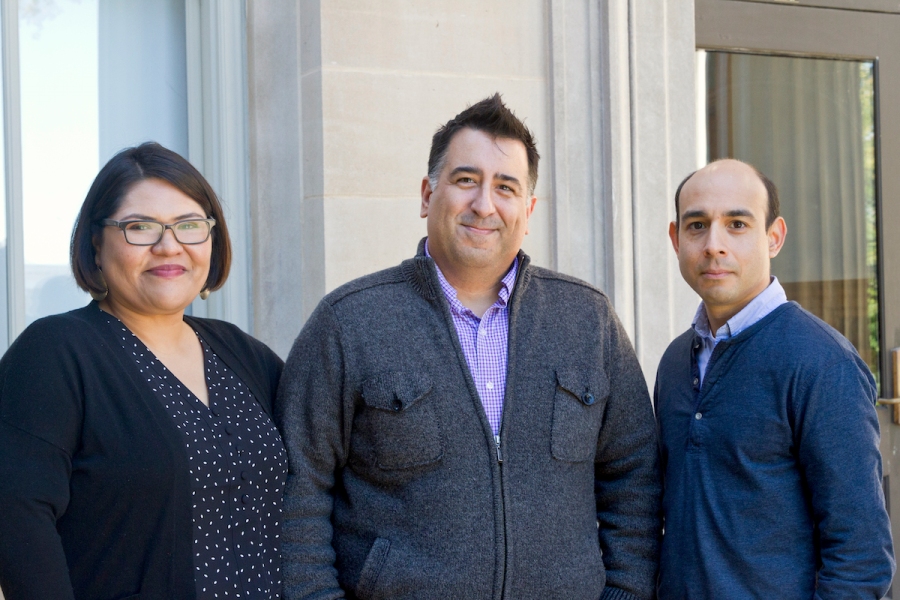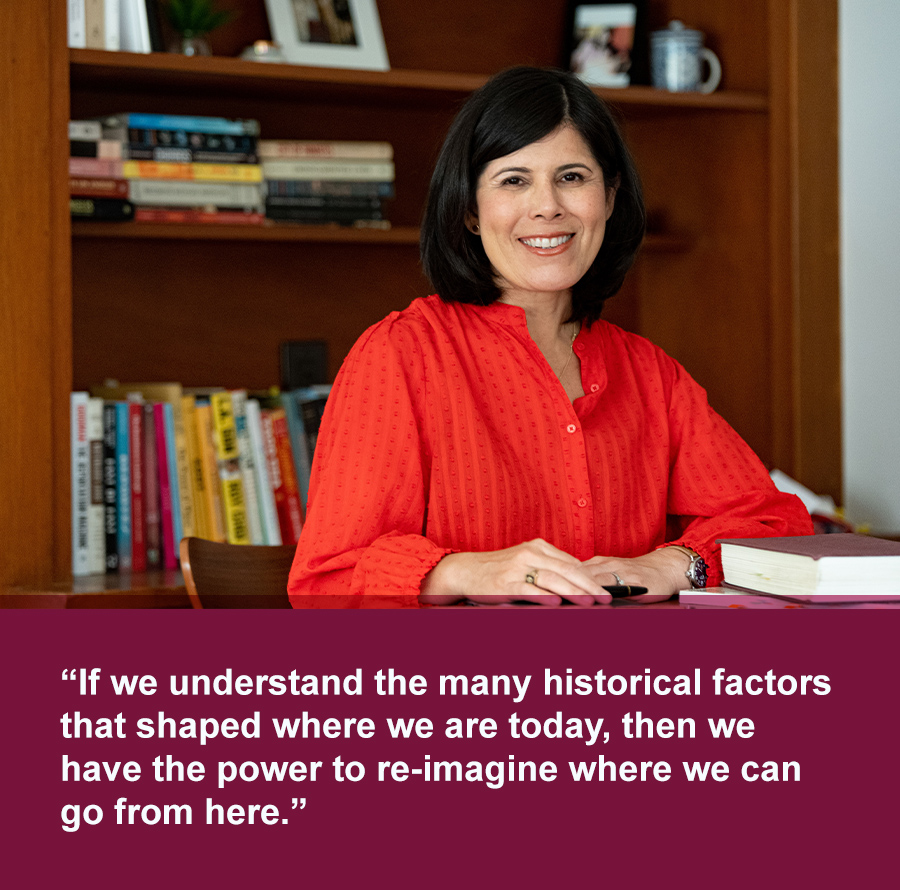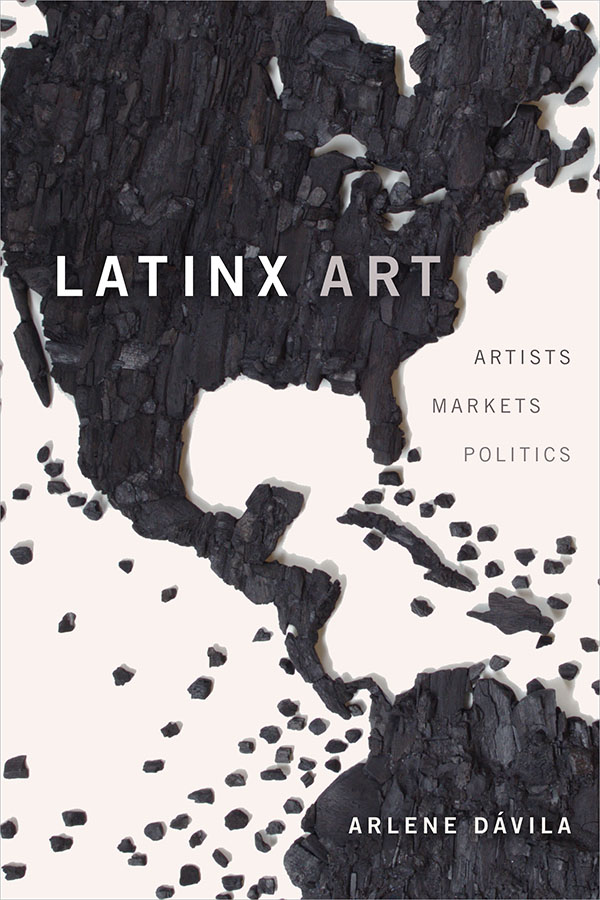
The 2019–20 Andrew W. Mellon Sawyer Seminar, Imagining Latinidades: Articulations of National Belonging, was drastically affected by spring cancellations due to COVID-19. Following six months of robust programming, the final three-day seminar had to be postponed. (It is currently scheduled for March 26–27, 2021.) Despite this unexpected interruption, the Seminar’s co-directors—Darrel Wanzer-Serrano, Rene Rocha, and Ariana Ruiz—attracted more than 700 participants to talks by scholars from California, Illinois, Missouri, New York, North Carolina, Ohio, and Texas, who presented both foundational and cutting-edge work. The Obermann Center greatly enjoyed working with this group of scholars and regret that two of them have since left for jobs at other universities. Darrel Wanzer-Serrano is now at Texas A&M University, and Ariana Ruiz is now at University of California-San Diego. We wish them both well!
The three-day opening seminar in September 2019, “Imagining Latinidades in Global and National Perspective,” featured six scholars. Anna Sampaio, professor of Ethnic Studies and Political Science at Santa Clara University, gave an opening keynote that used intersectionality to examine the challenges of contemporary Latina/o/x politics drawing lessons of meaning in the face of increased vulnerability and renewal in the face of violence. The next morning began with a talk by Valerie Martinez-Ebers, director of the Latino and Mexican American Studies Program at the University of North Texas, who focused on the various roles of Latinas in mobilizing the Latino community since the second wave of the women’s movement. She was followed by Gina Perez, a cultural anthropologist and professor in the Comparative American Studies Department at Oberlin College, who presented efforts by faith-based and Latina/o communities to offer hopeful lessons about the enduring power of sanctuary practices. Arlene Dávila, professor of Anthropology and American Studies at New York University and founding director of The Latinx Project, completed the day by sharing findings from her book, Latinx Art: Artists, Markets, and Politics (Duke University Press, 2020), regarding misconceptions about Latinx art that have made it difficult to imagine its value and place in the contemporary art world.

On Saturday, Natalia Molina, professor of American Studies at the University of Southern California and a 2020 MacArthur Fellow, shared her current work on the Mexican-American placemakers of the Los Angeles Echo Park neighborhood; and Claudia Milian, professor of Romance Studies and director of Latino/a Studies in the Global South at Duke University, presented research about eking out a living through “contaminated survival”––encouraging the audience to think expansively about unpredictable Latinx turning points.
In October, another three visitors explored the theme of “Latina/o/x Migration.” Maura Toro-Morn, sociologist and director of the Latin American and Latino Studies Program at Illinois State University, spoke about the paradoxical nature of contemporary migrations in the Heartland; Karma Chávez, chair and associate professor of Mexican American and Latina/o Studies at the University of Texas-Austin, presented on the discourse of prison abolition, an idea emerging from Black radical traditions, which has emerged in contemporary immigration rights and justice organizing; and former UI graduate student, activist, and artist Fidencio Fifield-Perez shared his experience as an activist-artist and professor living and working under the weight of DACA.

The next trio that visited the UI in November were Suzanne Oboler, a Peruvian-American scholar who is a Professor of Latina/o Studies at John Jay College; Julie Avril Minich, professor of English and Mexican American and Latina/o Studies at the University of Texas-Austin; and Jillian Baez, professor of Africana and Puerto Rican/Latino Studies at Hunter College. Each focused on citizenship and belonging in talks about, respectively, Mexican-American citizenship, diabetes and healthcare, and Latinx media audiences.
The one event that took place during the spring semester featured scholars of the Latina/o Midwest. Theresa Delgado, professor of Comparative Studies at The Ohio State University, spoke about environmental sustainability; Lilia Fernández, professor of Latino and Caribbean Studies and History at Rutgers University, spoke about claims of historical belonging; and Sujey Vega, who holds multiple positions at Arizona State University and is the author of Latino Heartland: Of Borders and Belonging in the Midwest (2015, NYU Press), spoke about the meaning of the border for Midwestern Latinx.
On March 26–27, 2021, the trio will reconvene to host the finale of their Sawyer Seminar, “Performing Latina/o/x Futurity.” The invited guests are Leticia Alvarado, Ethnic Studies and American Studies, Brown University; Lawrence La Fountain-Stokes, Spanish and Women’s and Gender Studies, University of Michigan; Ramón Rivera-Servera, Performance Studies, Northwestern University; Cathryn Josefina Merla-Watson, Mexican American Studies, University of Texas-Rio Grande Valley; Richard T. Rodríguez, Media and Cultural Studies, University of California-Riverside; Gaye Theresa Johnson, African American Studies and Chicana/o Studies, University of California-Los Angeles; Catherine Ramírez, Latin American and Latino Studies, University of California-Santa Cruz; and John Mckiernan-González, History, Texas State University.

